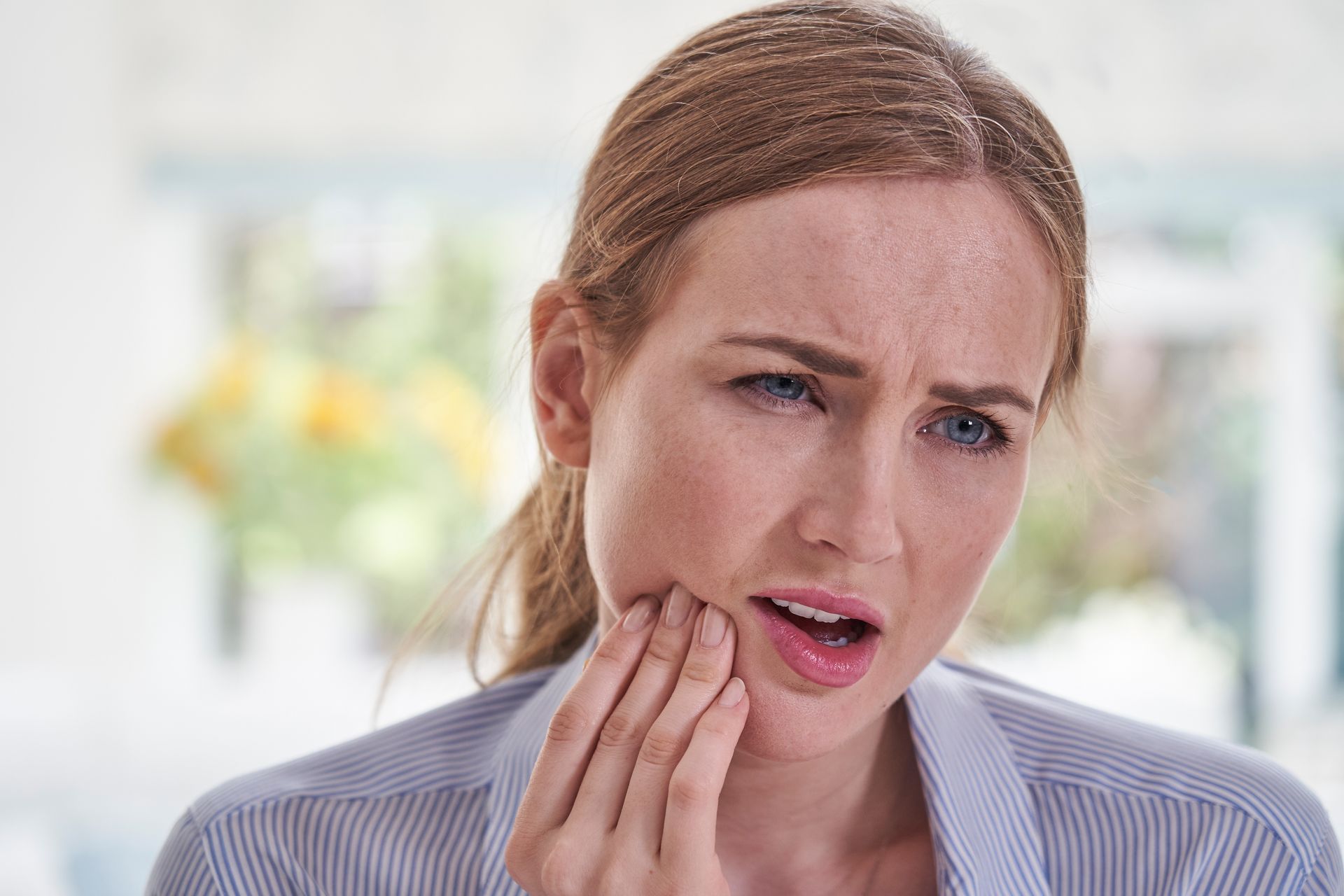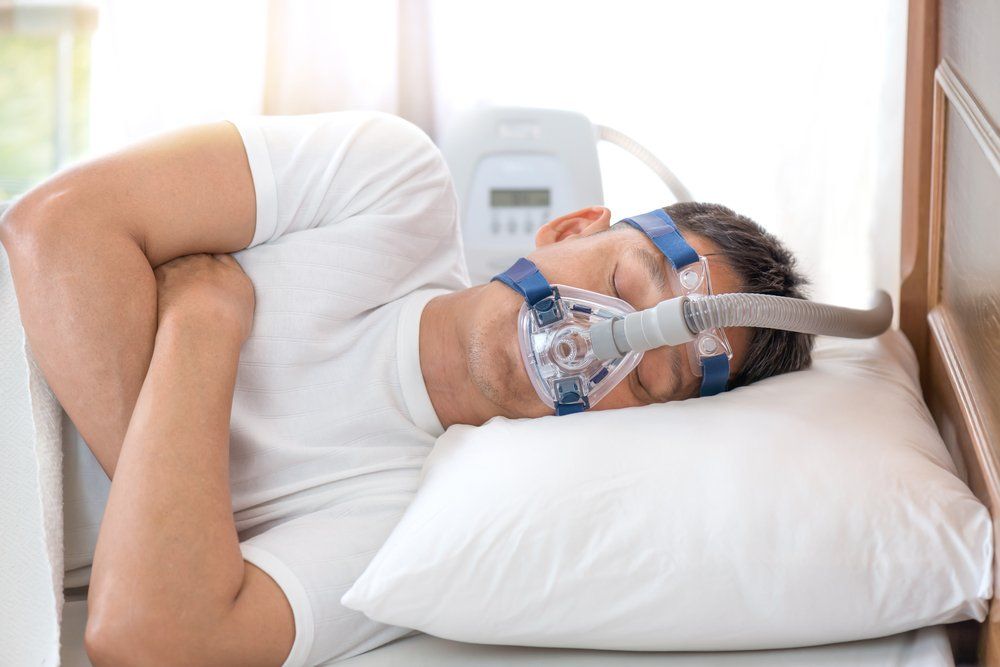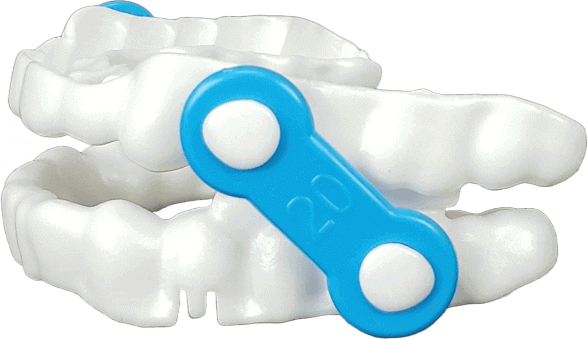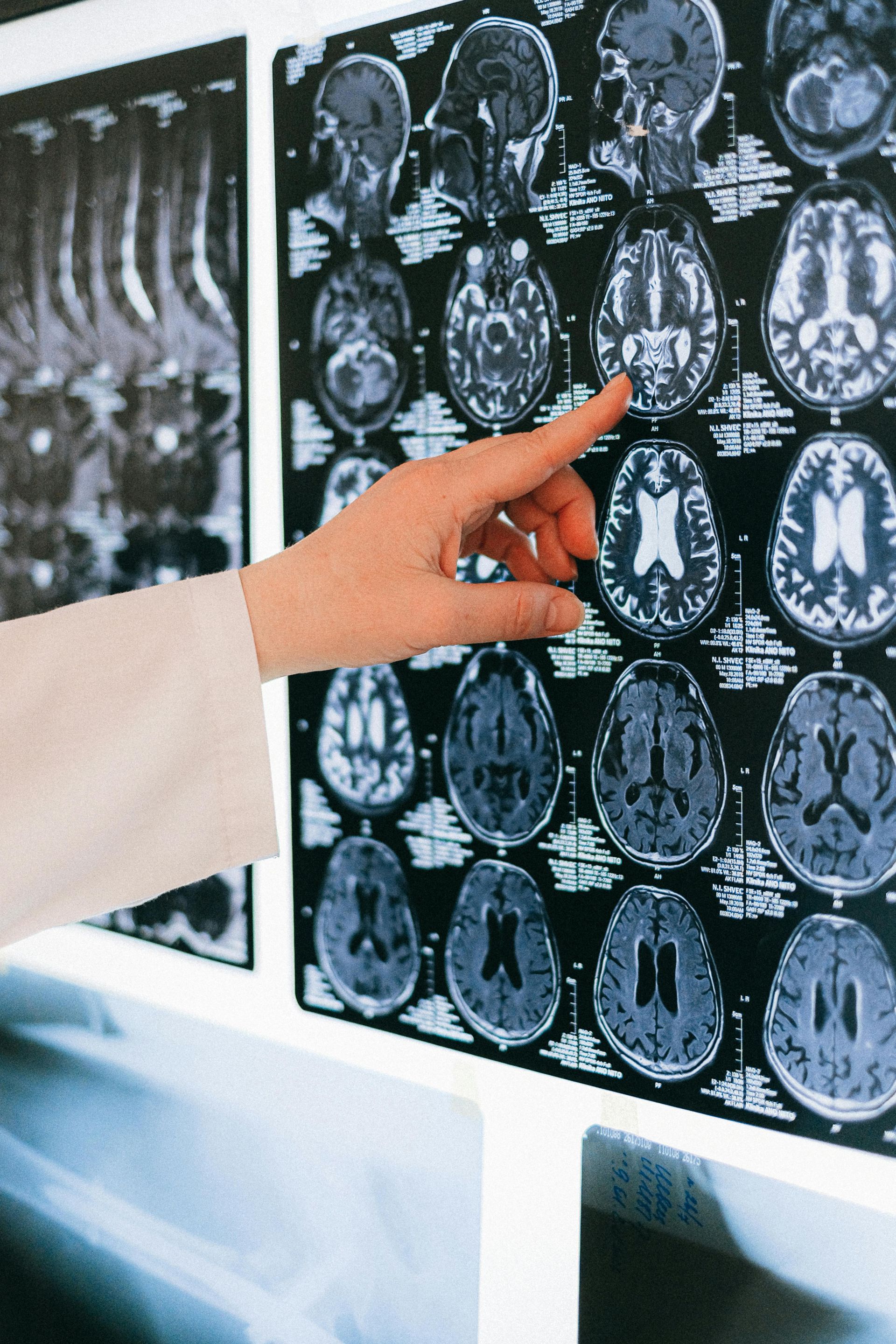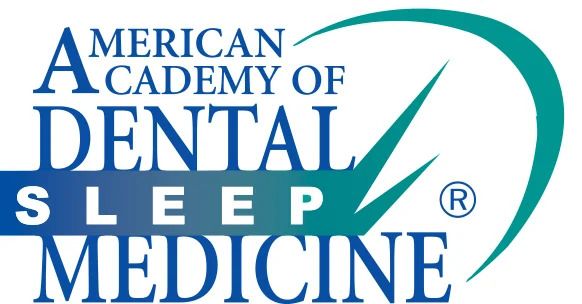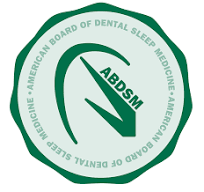The Long Term Effects of Untreated TMJD
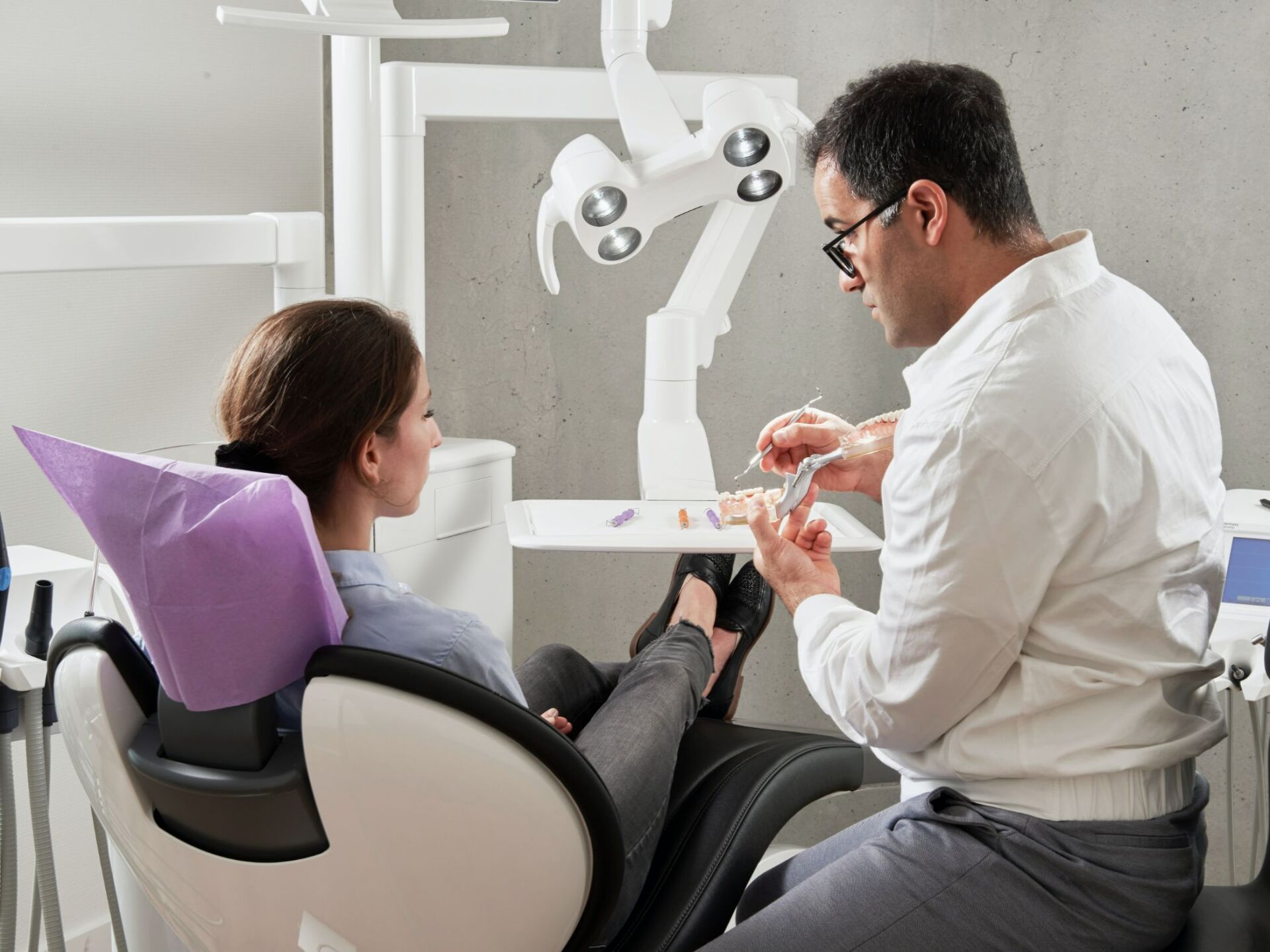
Temporomandibular Joint Disorder (TMD) is a painful jaw disorder that may lead to chronic, long-term effects if left untreated or undertreated.
It’s common to think TMD symptoms aren’t that bad or that you can endure the pain for a while. If the issue is a true TMJ disorder, however, the cycle of pain and other symptoms are likely to increase in frequency, remain for longer periods of time, and may become constant.
If you have one or more TMD symptoms, accurate diagnosis and adequate treatment are essential. Read on to understand what your TMJs are and how they work, what TMD entails, symptoms to watch for, what kind of medical professionals treat TMD, the potential results of untreated TMD, and recommend next steps.
What is TMJ Disorder?
Your temporomandibular joints (TMJs), located on each side of your head just under the ear, connect your jaw to your skull. Along with several muscles, they work as a sliding hinge, enabling you to open and close your mouth so you can chew, drink, talk, and yawn. A variety of factors can cause one or both TMJs to become misaligned or inflamed, resulting in a painful condition called temporomandibular joint disorder (TMD). Symptoms include headache, jaw pain, clicking sounds in the jaw when you open and close your mouth, earache, dizziness, vertigo, and more.
Approximately 12% of people in the United States experience TMD at some point in their life, with women suffering severe pain and restricted jaw movement more than men in a 9:1 ratio. The good news is TMJ experts like Dr. Katherine Phillips can successfully treat and help you manage your TMD, providing a long-term solution. Board-certified in orofacial pain, she is one of the most experienced TMD treatment specialists in the Greater Houston area.
What Happens If TMD Goes Untreated?
It’s vital that TMD is accurately diagnosed and effectively treated to help avoid suffering from long-term effects. TMD symptoms and pain can worsen over time when left untreated or undertreated, disrupting your health, wellness, and quality of life.
You may wonder why people with chronic pain due to TMD would let the condition go untreated. Chances are, they don’t realize they have it. Since TMD symptoms often mimic those of other conditions and the cause of a TMJ disorder may develop for years before the onset of physical symptoms, it is difficult to diagnose unless you see a medical professional that specializes in TMD, such as an orofacial pain specialist, TMJ dentist, sleep medicine physicians, ENTs, and pulmonologists.
TMD symptoms range from myofascial pain, ringing in the ears (tinnitus), earaches, tooth pain to jaw lock, teeth being worn down prematurely due to clenching and grinding, dizziness, and vertigo, in addition to the following signs.
Frequent Headaches
When your jaw muscles become misaligned, tense, and inflamed, the inflammation and soreness can spread to other muscles in the lower face and cheeks and travel up the sides and top of your head, causing headaches. Although chronic headaches and migraines are common TMD symptoms, unfortunately, the root cause—TMJ disorder—often goes undiagnosed. Sometimes patients go from doctor to doctor for years seeking relief until finally, it’s determined that TMD is the main culprit.
Chronic Jaw Pain and Clicking
If your jaw pops or clicks while you are chewing or opening your mouth without hyperextending it, you could have TMD. These sounds occur when the cartilage-like disc inside your jaw joint becomes dislodged or displaced. The disc will slip when you open and close your mouth, creating a popping or clicking sound. Over time, the disc may become “sticky”, creating an open or closed mouth locking sensation.
Sleep Disorders
TMD and obstructive sleep apnea (OSA) can be intricately interconnected. OSA, a potentially life-threatening condition, is an upper airway disorder where your breathing stops and starts hundreds of times throughout the night, limiting the amount of oxygen you breathe while asleep. So, in addition to TMD symptoms, you can also suffer from OSA symptoms, including excessive daytime sleepiness, difficulty concentrating, and even depression and anxiety, to name a few. Proper diagnosis is needed to separate a TMJ disorder from obstructive sleep apnea.
Shoulder, Neck, and Back Pain
People are often surprised to learn their shoulder and neck pain is a result of TMD and that up to 70 percent of neck problems may be related to TMJ dysfunction. Since our muscles are interconnected, inflammation and dysfunction can spread from the jaw and facial muscles to the neck and shoulder, reaching as far as your lower back.
Dietary Issues with TMD
When it hurts to chew food, it’s tempting to gravitate away from eating whole fruits and vegetables toward a softer diet. TMJ disorder patients who also have eating disorders face even more challenges.
What you eat can influence your nutritional intake and health status. Although soft, processed, high-fat, nutrition-poor foods are easier to eat with a sore jaw, a diet like this can result in chronic constipation, weight gain, and nutritional deficiencies. On the flip side, you may resort to eating less due to jaw pain, causing weight loss as well as nutritional deficiencies.
Negative Impact on Life Quality
TMD symptoms can become so unbearable that sufferers can develop dependencies on drugs and alcohol to escape from the pain. This can lead to a whole host of additional physical and mental health problems. Moreover, chronic pain can result in a lack of quality sleep, leading to or worsening depression and anxiety.
Ways to Help Your TMD
There are several options available that treat TMD. Splint therapy is the most conservative, effective, and research-based treatment. In addition to medical treatment, you can lessen TMD symptoms and limit flare-ups by avoiding chewy, tough, hard, or sticky foods that put stress on your TMJs and the surrounding muscles. Facial massage, Physical therapy, and alternating hot and cold compresses also help alleviate associated aches and pain. Additionally, look at ways to reduce stress, resulting in teeth clenching and grinding that creates and/or worsens TMD.
Next Steps
If you are suffering from what could be TMD symptoms, it’s important to seek diagnosis and treatment from an expert like
Dr. Katherine Phillips. She is double board-certified in orofacial pain and dental sleep medicine and has spent most of her career in these two fields instead of general dentistry. With extensive experience and education, she uses mainstream, evidence-based medical science to identify the contributing factors causing your pain and will offer a TMD treatment plan that best fits your needs.
-2700x842-1920w.png)





